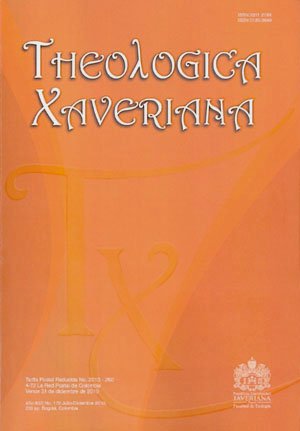Abstract
Although Theology is born as the result of a contemplative experience, this extraordinarily peculiar feature has lost its ground in front of a theological elaboration more inspired in Western reason, which has been expressed and promoted by means of a variety of schools and centers of study. Recent theological reflection shows a revitalized interest in recovering its original source. This interest is strengthened by the movement started by communities and people oriented to spirituality and mysticism as horizons of meaning within
society. On the other hand, the understanding of the revelation in Torres Queiruga offers an interesting re-encounter landing strip for Theology and experience. From this perspective, a brief review of the understandings of mystical experience in three authors is presented, and at the end we can find some reflections and questions regarding the possibilities of such an experience as an approach to the theological work.
This journal is registered under a Creative Commons Attribution 4.0 International Public License. Thus, this work may be reproduced, distributed, and publicly shared in digital format, as long as the names of the authors and Pontificia Universidad Javeriana are acknowledged. Others are allowed to quote, adapt, transform, auto-archive, republish, and create based on this material, for any purpose (even commercial ones), provided the authorship is duly acknowledged, a link to the original work is provided, and it is specified if changes have been made. Pontificia Universidad Javeriana does not hold the rights of published works and the authors are solely responsible for the contents of their works; they keep the moral, intellectual, privacy, and publicity rights.
Approving the intervention of the work (review, copy-editing, translation, layout) and the following outreach, are granted through an use license and not through an assignment of rights. This means the journal and Pontificia Universidad Javeriana cannot be held responsible for any ethical malpractice by the authors. As a consequence of the protection granted by the use license, the journal is not required to publish recantations or modify information already published, unless the errata stems from the editorial management process. Publishing contents in this journal does not generate royalties for contributors.


